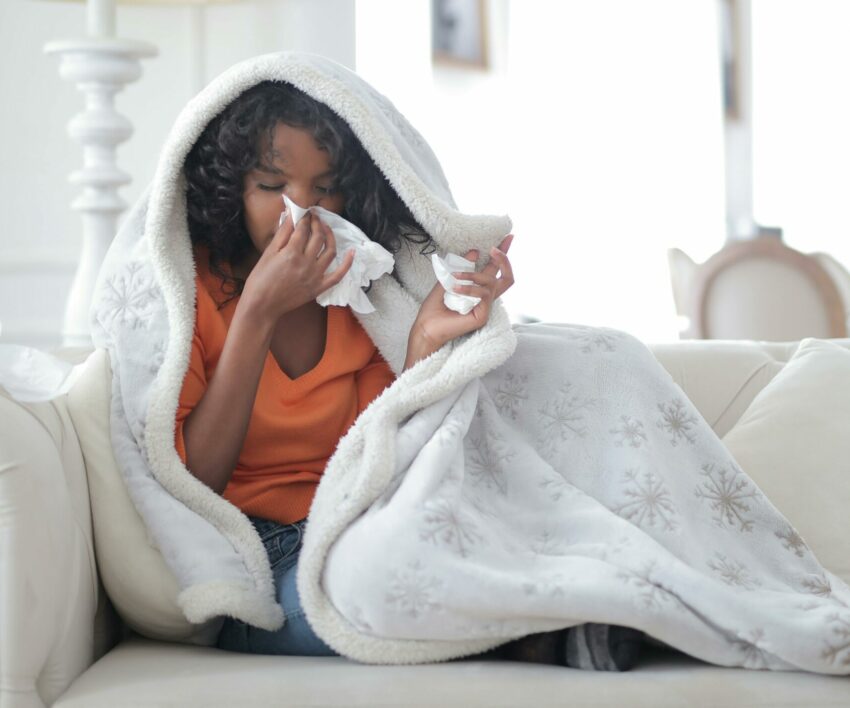
As seasons change, we are often prone to allergies that are associated with the new seasons that we enter.
According to the health information hub, Healthline, because we are always indoors during the cold season, and trying our best to warm up, we are often exposed to allergens such as “airborne dust particles, dust mites, pet dander (skin flakes that carry proteins), mould, and cockroach droppings.”
The above-mentioned health information hub explains that symptoms for winter allergies vary in severity; the most common ones are:
- Sneezing
- Stuffy/runny nose
- Itchy eyes
- Throat itching
- Ear itching
- Difficulty breathing, especially through a clogged nose
- Dry coughing, sometimes producing phlegm
- Skin rash
- Low-grade fever
Healthline claims that it is then considered severe when you start experiencing asthma-related symptoms such as “chest tightness, wheezing or whistling when you breathe, breathing rapidly, feeling exhausted, and feeling anxious.”
There are ways to fight these allergies once you encounter them or even prevent them from getting worse. A board-certified allergist, Dr Douglas H. Jones, shared these tips with Everyday Health, a digital media company that produces health-related content.
Dr Jones claims that warming up indoors makes the air drier, which can cause skin cracking, dry noses, and nosebleeds, which increase the chance of infection. He recommends nasal saline rinses as a way to lower the risk of viral infection. Winter allergies may not go away completely, but limiting indoor allergen exposure will help.
The allergist further suggests the following:
Use area rugs: Stay away from wall-to-wall carpeting since it creates an ideal habitat for dust mites. Instead, use area rugs.
Clean thoroughly: Use a hoover with a high-efficiency particulate air (HEPA) filter and clean, dust, and hoover regularly.
Wash bed sheets frequently: Douglas advises washing bed sheets once a week in hot water at least 54 degrees celsius to kill dust mites and using hypoallergenic pillowcases and mattresses to keep these mites trapped.
Wash your pets: It is also advised to wash pets once a week to reduce animal dander. However, they shouldn’t be washed frequently because “that could worsen the issue by drying out their coats and skin.” If any family members suffer from allergies, Dr Jones suggests that they don’t have animals in their bedrooms.
Also see: How to combat winter depression




